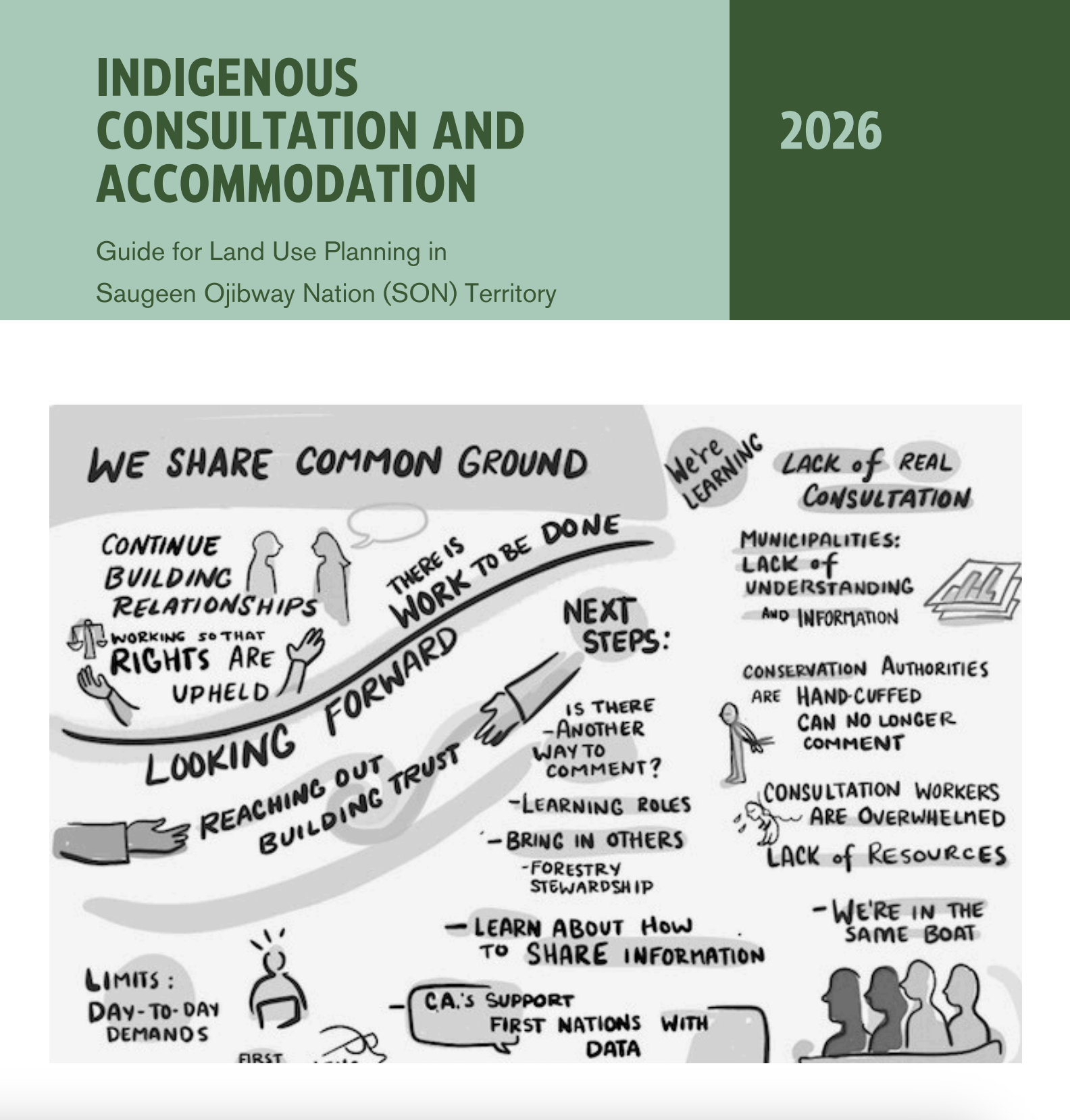Shared Path Comments on Bill 5 “Protect Ontario by Unleashing our Economy Act, 2025”
Written by Admin, Admin •
On April 17, 2025, Bill 5, the Protect Ontario by Unleashing our Economy Act, 2025, was tabled for first reading in the Ontario Legislature by the Hon. Stephen Lecce, Minister of Energy and Mines. Second Reading debate on Bill 5 was completed on May 6, 2025, and the legislation has been referred to the Standing Committee on the Interior for consideration. Shared Path submitted comments on this Bill.
Shared Path calls upon the Government of Ontario to repeal Bill 5 as it does not acknowledge First Nations and Treaty rights. This includes the Crown’s Duty to Consult and Accommodate and the principle of Free, Prior and Informed Consent (FPIC) outlined in the United Nations Declaration on the Rights of Indigenous Peoples (UNDRIP). Further, we support the Chiefs of Ontario’s call to undertake a full process for engagement with Ontario First Nations prior to proceeding with this legislation. A revision of the preamble is not sufficient to build trust or demonstrate fulsome reconciliation.
First Nations need to be consulted early. Bill 5 advances economic development by disregarding due process in accordance with Duty to Consult and Accommodate. For example, Schedule 9 of the Bill, the Special Economic Zones Act, 2025 (the “SEZA”) lacks critical definition and explicit oversight mechanisms or ways and means in which First Nations will be able to either participate in, or raise concerns about, decision-making; leaving the Premier and cabinet with unprecedented control over the province, including the ability to exempt individuals and corporations from provincial and municipal laws. This leads to a weakening of democratic accountability and environmental integrity while bypassing consultation with First Nations.
In order to strengthen, protect, and grow the Ontario economy, a process is needed to ensure First Nations rights and interests are not put at risk. The 2017 Saugeen First Nation v Ontario Court ruling found that First Nations have a right to be consulted and accommodated, there needs to be a clear and coherent process, with capacity and funding for the First Nations to participate in consultation including legal costs and peer reviews funded by the Crown &/or proponent. It is reasonable for a First Nation to take the position that it should not have to pay for the Crown to fulfil its constitutional obligations. This precedent sets out that the economic benefit for a project does not override inherent and constitutional protected rights – which draw upon a relationship to healthy land and waters.
Bill 5 also significantly deregulates environmental protections, fast-tracks critical resource extraction, and exempts the need for archaeological assessments which trigger consultation with First Nations. The cumulative impacts are significant, including lack of consideration for totemic species, medicinal species, and subsistence species — this inhibits cultural practices which infringes upon First Nations rights. Economic Reconciliation must not be presented as a short term cash influx at the expense of long term wellbeing.
This omnibus legislation would:
- Empower the province to declare “special economic zones” under the Special Economic Zones Act, 2025, where provincial laws and municipal by-laws—including environmental and public-participation rules—would be suspended and “trusted proponents” would be given authority.
- Weaken mining protections and exempt major projects from Environmental Assessment Act reviews (e.g., Dresden landfill, Eagle’s Nest Mine).
- Repeal the Endangered Species Act, 2007, replacing it with a Species Conservation Act, 2025 – weakening species-at-risk safeguards and prioritizing economic growth over ecological and public-health protections.
- Exempt developments from archeological assessments if the Ontario government is of the opinion that an exemption could potentially advance provincial priorities. Archeological assessments often trigger the duty to consult
Why this matters:
- Threatens Indigenous rights by fast-tracking extraction and exempting the need for archaeological assessments and thereby losing opportunities for consultation with Indigenous communities and First Nations governments.
- The Premier and cabinet would receive unprecedented control over the province, including the ability to exempt individuals and corporations from provincial and municipal laws – weakening environment integrity and democratic accountability while bypassing consultation with Indigenous communities.
- Undermining Free, Prior, and Informed Consent (FPIC) – and failure to meet legal and moral obligations under Section 25 and Section 35 of the Constitution and the United Nations Declaration on the Rights of Indigenous Peoples (UNDRIP).
- There is no assurance that treaty and inherent rights will be respected or protected in the face of development.
Constitutional responsibilities to First Nations will always take precedence over any particular law or regulation. Ontario will always need to consult and accommodate, and to respect the spirit and intent of the Treaties. If Ontario fails to consult and accommodate, and to respect the spirit and intent of the Treaties, the province will be challenged in the courts.
Click here to view the Shared Path submission to the ERO.
Click here to view the Shared Path submission to the Standing Committee on the Interior.




